LETHYROX 100 MCG
LETHYROX 100 mcg TABLET are synthetic thyroid hormones that replace thyroid hormone in the body when natural thyroid hormone production is insufficient to fulfill the body’s demands. LETHYROX 100 mcg TABLET is a thyroid hormone supplement used to treat hypothyroidism and poor thyroid hormone production. It contains levothyroxine, a synthetic thyroid hormone that is chemically comparable to the thyroid hormone thyroxine generated by our gland. Levothyroxine aids in the replacement of thyroid hormone and/or the relief of thyroid gland stress.
Hypothyroidism is a chronic disorder in which the thyroid gland (located in the neck behind the throat) is unable to generate adequate thyroid hormone. Thyroid hormones, which govern the body’s metabolism, are made up of triiodothyronine (T3) and thyroxine (T4). The body’s metabolism slows down and the person feels less energy when they have an underactive thyroid. Other signs and symptoms include fatigue, constipation, weight gain, feeling chilly even in warm weather, dry skin, too much or too little menses (in women), and even a depressed mood. Hypothyroidism must be treated in order for the body’s metabolism to return to normal (basal metabolic rate).
If you have any of the aforementioned symptoms, your doctor will recommend a blood test called a “thyroid function test,” which examines three thyroid hormones: TSH, T3, and T4. TSH levels that are too high and T3/T4 levels that are too low suggest that your thyroid gland isn’t working properly. Your doctor will change the dose of LETHYROX 100 mcg TABLET based on your body weight and thyroid function test results. It might take a few weeks for the drug to have full effect. It is recommended that you get your thyroid function checked on a regular basis to ensure that you are getting the most out of your LETHYROX 100 mcg TABLET.
Take LETHYROX 100 mcg TABLET once daily, on an empty stomach, one-half to one hour before breakfast, with a full glass of water, as directed by your doctor. Overdosage of LETHYROX 100 mcg TABLET can induce headaches, anxiety, restlessness, irritability, diarrhea, muscular spasm, weight loss, feeling hot even in cold circumstances, menstruation irregularities (in women), and skin rash. Do not take a double dosage if you miss a dose since it may cause significant negative effects.
For your bone health, your doctor may prescribe calcium or vitamin D supplements in addition to LETHYROX 100 mcg TABLET. LETHYROX 100 mcg TABLET is not intended to be used just for weight reduction. People with diabetes who use LETHYROX 100 mcg TABLET may have changes in blood glucose control, which may need the use of more antidiabetic drugs or insulin. As a result, patients with diabetes should seek medical advice and closely monitor their blood glucose levels after beginning, altering, or ending thyroid hormone therapy.
LETHYROX 100 mcg TABLET is used for the following purposes: Hypothyroidism is a condition in which the thyroid gland is underactive (underactive thyroid)
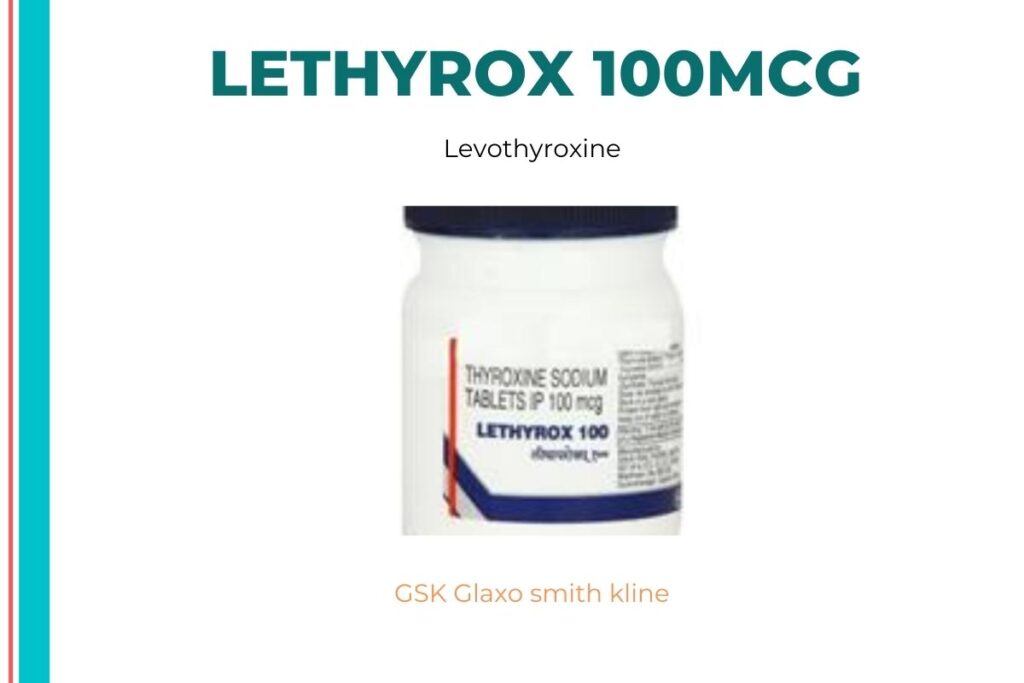
Medicinal Advantages
LETHYROX 100 mcg TABLET helps to treat an underactive thyroid gland (hypothyroidism) and reduces symptoms of low thyroid hormones such as unexplained weight gain, lethargy, cold sensitivity, and more. As a result, it aids in the replacement of the body’s own natural thyroid hormone, which is necessary for both mental and physical wellness. LETHYROX 100 mcg TABLET, on the other hand, should not be used to treat obesity or weight reduction.
Use Instructions
This drug should be taken once a day, on an empty stomach, half an hour before breakfast, with a full glass of water. However, if you have any doubts about using LETHYROX 100 mcg TABLET, you should visit a doctor.
Storage
Store in a cool, dry location away from direct sunlight.
LETHYROX 100 mcg TABLET SIDE EFFECTS
LETHYROX 100 mcg TABLET, like other drugs, can produce adverse effects, but not everyone experiences them. Incorrect dose or irregular ingestion are the most common causes of side effects. Palpitations, muscular spasms, headaches, anxiety, irritability, insomnia, tremors, muscle weakness, increased hunger, weight loss, diarrhea, heat intolerance, menstruation abnormalities, and skin rash are all possible side effects. These unpleasant side effects are seldom noticed when taken in the correct dosage as suggested by your doctor. However, if these symptoms continue to concern you, consult your doctor.
Drug Recommendations
Soybean flour, cottonseed meal, cabbage, cauliflower, walnuts, dietary fiber, calcium, and calcium-fortified drinks, among other foods, may interfere with the effectiveness of LEVOTHYROXINE TABLET. As a result, if at all possible, avoid eating these meals within several hours of dosage. Patients with acute myocardial infarction and those with excessive blood pressure should not use LEVOTHYROXINE TABLET. Before using LEVOTHYROXINE TABLET, it is suggested that you have your heart function closely monitored by a doctor.
Interactions Between Drugs
Drug-Drug Interactions: Antidepressants (amitriptyline, imipramine, dosulepin), Beta Blockers (propranolol, atenolol, and sotalol), Anti-convulsants (carbamazepine, primidone, and phenytoin), Calcium/Vitamin D, Neuro-related medicines (amphetamine / dextroamphetamine), Antidepressants (ami If you’re taking any of these medications, talk to your doctor before using LETHYROX 100 mcg TABLET.
Drug-Food Interactions: Tell your doctor if you’re taking any homeopathic, ayurveda, Unani, or over-the-counter medications. These medications may interfere with the effectiveness of LETHYROX 100 mcg TABLET. Foods including soybean flour, cottonseed meal, walnuts, dietary fiber, calcium, and calcium-fortified beverages may also reduce LETHYROX 100 mcg TABLET absorption. So, if at all possible, stay away from these meals.
Thyroid hormones increase the workload of the heart and the body’s oxygen consumption. Drug-Disease Interaction: Thyroid hormones increase the workload of the heart and the body’s oxygen consumption. As a result, in heart patients (cardiovascular illnesses) such as high blood pressure, chest discomfort (angina), and coronary artery disease, an LETHYROX 100 mcg TABLET should be used with caution. Your heart function should be checked on a regular basis. If chest discomfort happens regularly, contact your doctor so that the dose can be reduced.
Safety Suggestions
ALCOHOL
To avoid undesirable side effects, you should not drink alcohol while using LETHYROX 100 mcg TABLET.
PREGNANCY
Only use LETHYROX 100 mcg TABLET if your doctor has recommended it. Due to increasing blood levels of oestrogen (female sex hormone), the demand for LETHYROX 100 mcg may rise during pregnancy; thus, thyroid function should be monitored periodically both during and after pregnancy. Your doctor can modify your thyroid hormone dose in this instance.
BREAST FEEDING
Even when using large doses of levothyroxine, the quantity of LEVOTHYROXINE TABLET that passes into breast milk during breastfeeding is very small and hence safe. However, if you have any doubts, seek medical advice.
DRIVING
LEVOTHYROXINE TABLET has no effect on your driving abilities.
LIVER
Because LEVOTHYROXINE TABLET has no effect on the liver, it can be used in the specified amount.
KIDNEY
Because it has no effect on the kidneys, LEVOTHYROXINE TABLET can be used in the specified amount. Patients with an adrenal gland problem or consequence should visit a doctor before taking it.
No habit formation
Advice on Diet and Lifestyle
Reduce your symptoms and boost your thyroid function by eating the correct nutrition and taking your prescription medications on a regular basis. Hypothyroidism patients benefit from iodine, zinc, and selenium. Iodine and selenium supplements, on the other hand, should only be used if your doctor recommends it.
In hypothyroidism, our bodies often lose calcium (hypocalcemia) and Vitamin D. People with hypothyroidism should choose calcium-rich diets in this situation.
People with hypothyroidism normally have a slower metabolism, so adding additional protein to your diet may help you speed up.
Yoga and aerobics routines might assist to enhance your metabolism on a daily basis.
People suffering from hypothyroidism should consume more vegetables, fruits, and lean proteins. These low-calorie meals may help you avoid gaining weight.
Goitrogens (agents that interfere with the thyroid gland’s normal function) are found in soy foods (tofu), cabbage, broccoli, kale, cauliflower, spinach, sweet potatoes, cassava, peaches, strawberries, millet, pine nuts, peanuts, and other foods.
Recommendations
Excessive doses may result in significant or even life-threatening toxicity symptoms. As a result, if you forget to take LEVOTHYROXINE TABLET at any time, take it as soon as you recall. If your next dosage is approaching, you should omit the missed dose and continue with your usual regimen as directed by your doctor.
The use of LEVOTHYROXINE TABLET for the treatment of obesity or weight reduction is not recommended.
Patients with adrenaline or pituitary gland issues, heart illness, diabetes, or coagulation disorders should not use LEVOTHYROXINE TABLET without first consulting their doctor, as the dose may need to be changed.
Patients with diabetes who are using LEVOTHYROXINE TABLET should see their doctor before starting this medication since it has the potential to impair glycemic control and require more antidiabetic medications or insulin treatment.
The use of LEVOTHYROXINE TABLET on a regular basis may reduce bone mineral density, especially in postmenopausal women. As a result, talk to your doctor about the lowest dose feasible for your bone health.
Let your doctor know if you are taking LEVOTHYROXINE TABLET before any operation.
Thyroid function tests are normally performed on an empty stomach following a fast of six to eight hours.
This drug should not be used by those who have a rare inherited condition with galactose intolerance, Lapp lactase insufficiency, or glucose-galactose malabsorption.
Other details: This item is non-refundable.
Glossary of Diseases and Conditions
Hypothyroidism, also known as underactive thyroid, is a disorder in which the thyroid gland does not produce enough thyroid hormones to fulfill your body’s requirements. Our body’s functioning and metabolism slow down when thyroid hormone levels are low. Fatigue, increased sensitivity to cold, constipation, dry skin, unexplained weight gain, swollen face, hoarseness of voice, and muscular weakness are all symptoms of hypothyroidism. In certain hypothyroidism situations, calcium and vitamin D may be lost.
FAQs
The use of LEVOTHYROXINE TABLET is limited to the treatment of hypothyroidism and not for weight loss.
It is not recommended to take LEVOTHYROXINE TABLET with meals. Please take it on an empty stomach at least half an hour before your morning tea/coffee/breakfast.
If you notice symptoms such as abrupt weight gain, weariness, increased sensitivity to cold, dry skin, constipation, bloated face, muscular weakness, anxiety, or hoarseness in your voice, consult your doctor. For continued therapy, you should see an Endocrinologist/Physician.
Every month, you should have a thyroid profile test that includes T3, T4, and TSH levels. After using LEVOTHYROXINE TABLET as directed by your doctor, you will notice a drop in your TSH level.
Your thyroid hormone levels may fluctuate based on your age, gender, and medical condition (like pregnancy, chronic condition or complication). TSH levels in a 30-year-old woman may be approximately 4.2 mU/L, whereas in a 90-year-old male, they may be as high as 8.9 mU/L. Aside from that, your stress level, food, drugs, and menstrual cycle can all affect your thyroid hormone levels.
Limit your daily salt consumption to less than 2300 mg. When you eat too much salt, your blood pressure rises, especially if you have an underactive thyroid.
An Endocrinologist may advise a pregnant woman to take a high dose of LEVOTHYROXINE TABLET to satisfy the high-level thyroid hormone need based on the thyroid profile test. Treatment for an underactive thyroid is essential during pregnancy, since low thyroid hormone levels in the mother can affect both the mother and the fetus.
If you have hypothyroidism or an underactive thyroid, a TSH test can be done once a year to see if your thyroid hormone levels are within normal limits.
If you miss a dosage of LEVOTHYROXINE TABLET, do not take two doses. If you take too much LEVOTHYROXINE TABLET, you may have adverse effects such as anxiety, sleeplessness, moderate temperature increase, blood pressure elevation, or loose stools. In this instance, call your doctor right away and only take it if your doctor has given you permission.
Low haemoglobin (anemia), high blood pressure, muscular soreness, and weakness can occur in pregnant women with untreated hypothyroidism or underactive thyroid. Aside from that, it raises the chance of miscarriage, early delivery (before 37 weeks of pregnancy), and even stillbirth. Hypothyroidism that goes untreated during pregnancy can also induce hypothyroidism in the fetus. If you’ve been diagnosed with hypothyroidism, you should see an endocrinologist.
During the first several months of therapy, hair loss is possible. As your body responds to the drug, this impact is generally quite transitory. Tell your doctor if this effect persists or worsens so that you can get more therapy.
The usage of LEVOTHYROXINE TABLET for an extended period of time may result in a reduction in bone mineral density. For further information, talk to your doctor.

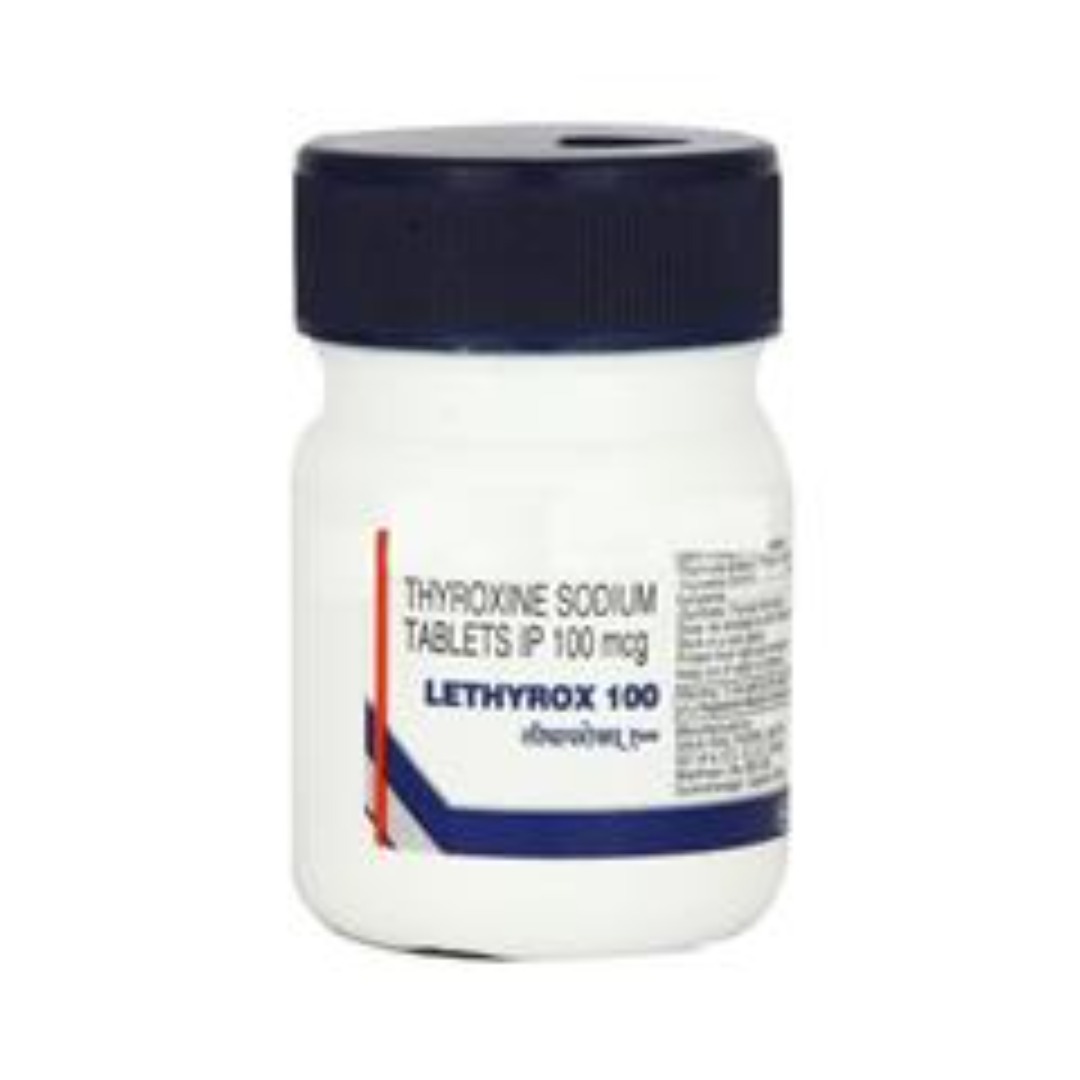
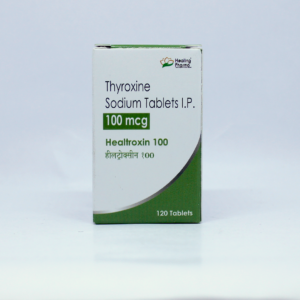
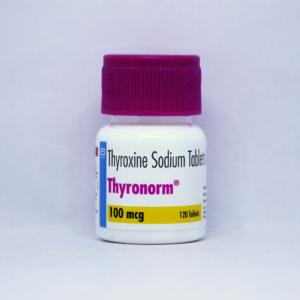
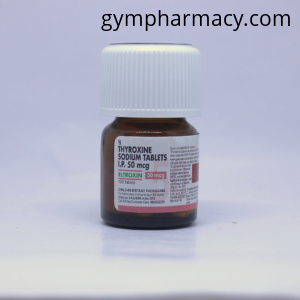
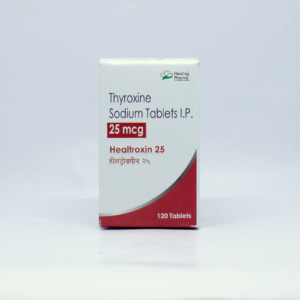
Leave a Reply
You must be logged in to post a comment.